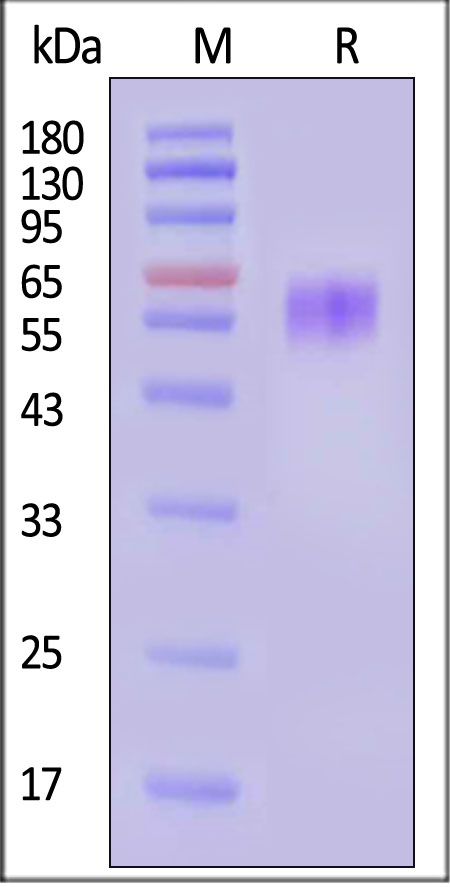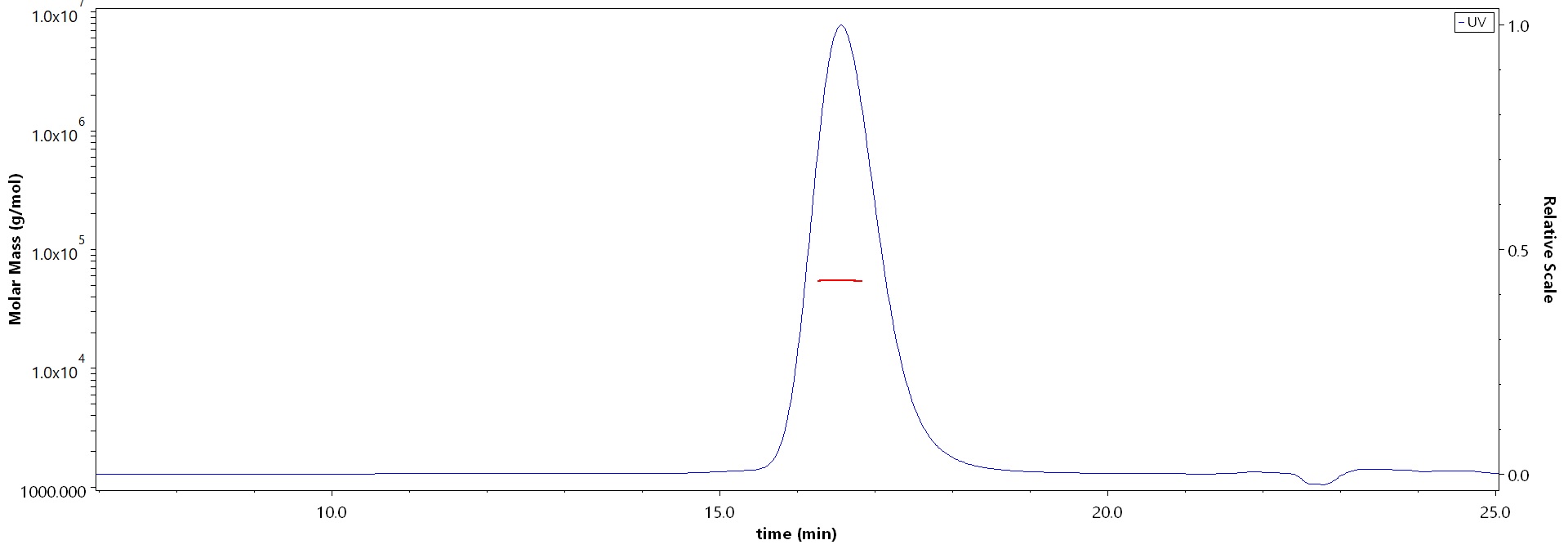分子别名(Synonym)
CUB domain-containing protein 1,CDCP1,CD318,Membrane glycoprotein gp140,Subtractive immunization M plus HEp3-associated 135 kDa protein,SIMA135,Transmembrane and associated with src kinases,TRASK,UNQ2486,PRO5773
表达区间及表达系统(Source)
Human CDCP1 (30-368) Protein, His Tag (CD1-H52H5) is expressed from human 293 cells (HEK293). It contains AA Phe 30 - Arg 368 (Accession # Q9H5V8-1).
Predicted N-terminus: Phe 30
Request for sequence
蛋白结构(Molecular Characterization)

This protein carries a polyhistidine tag at the C-terminus.
The protein has a calculated MW of 39.8 kDa. The protein migrates as 53-65 kDa when calibrated against Star Ribbon Pre-stained Protein Marker under reducing (R) condition (SDS-PAGE) due to glycosylation.
内毒素(Endotoxin)
Less than 1.0 EU per μg by the LAL method.
纯度(Purity)
>95% as determined by SDS-PAGE.
>90% as determined by SEC-MALS.
制剂(Formulation)
Lyophilized from 0.22 μm filtered solution in PBS, pH7.4 with trehalose as protectant.
Contact us for customized product form or formulation.
重构方法(Reconstitution)
Please see Certificate of Analysis for specific instructions.
For best performance, we strongly recommend you to follow the reconstitution protocol provided in the CoA.
存储(Storage)
For long term storage, the product should be stored at lyophilized state at -20°C or lower.
Please avoid repeated freeze-thaw cycles.
This product is stable after storage at:
- -20°C to -70°C for 12 months in lyophilized state;
- -70°C for 3 months under sterile conditions after reconstitution.
电泳(SDS-PAGE)

Human CDCP1 (30-368) Protein, His Tag on SDS-PAGE under reducing (R) condition. The gel was stained with Coomassie Blue. The purity of the protein is greater than 95% (With Star Ribbon Pre-stained Protein Marker).
SEC-MALS

The purity of Human CDCP1 (30-368) Protein, His Tag (Cat. No. CD1-H52H5) is more than 90% and the molecular weight of this protein is around 45-65 kDa verified by SEC-MALS.
Report
背景(Background)
CUB domain-containing protein 1, also know as CDCP1. CDCP1 is a cell surface glycoprotein that has been recognized both as a tumour marker and as a potential target to disrupt progression of cancer. CDCP1 has been shown to modulate cellsubstratum adhesion and motility in colon cancer cell lines.























































 膜杰作
膜杰作 Star Staining
Star Staining











